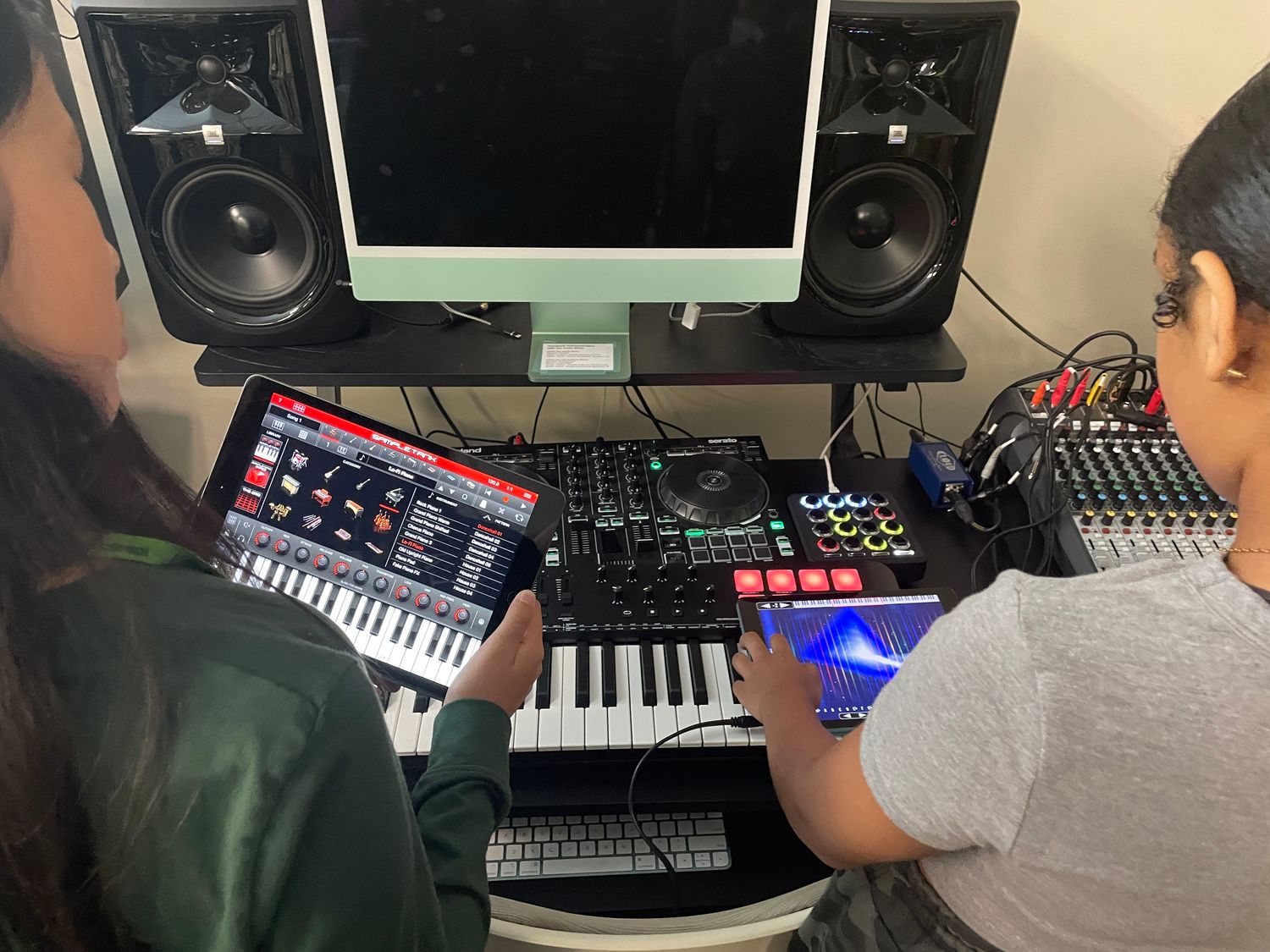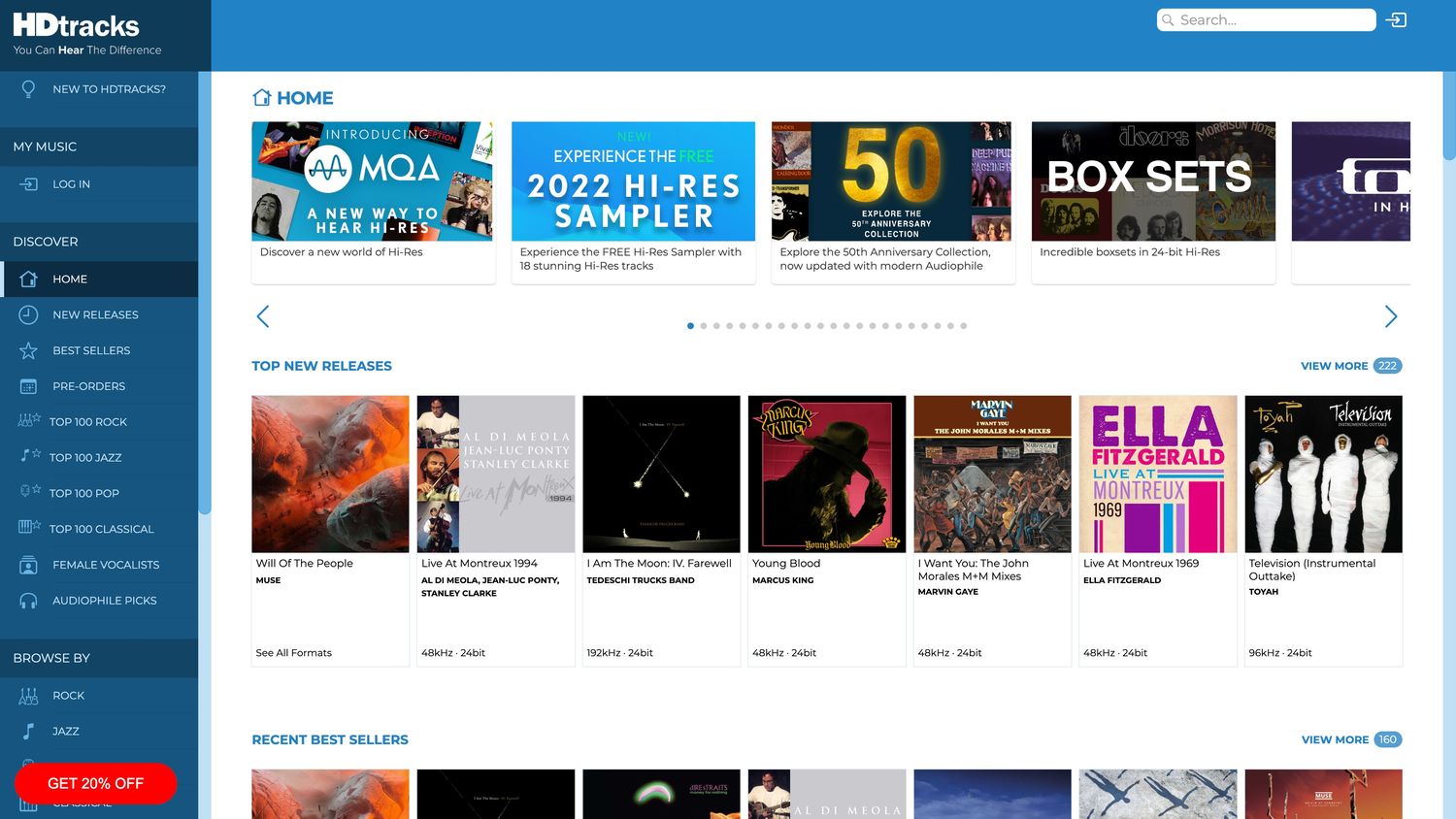Home>Production & Technology>Digital>Why Reselling Digital Music Should Be Legal


Digital
Why Reselling Digital Music Should Be Legal
Published: March 10, 2024
Learn why reselling digital music should be legal and how it can benefit both consumers and creators. Explore the impact of digital reselling on the music industry and copyright laws.
(Many of the links in this article redirect to a specific reviewed product. Your purchase of these products through affiliate links helps to generate commission for AudioLover.com, at no extra cost. Learn more)
Table of Contents
Introduction
The digital age has revolutionized the way we consume and interact with music. With the advent of digital music platforms, music lovers can access an extensive library of songs at their fingertips. However, the issue of reselling digital music has sparked debates and controversies within the music industry. The legality of reselling digital music is a contentious topic that has raised questions about ownership rights, intellectual property, and the evolving landscape of music distribution.
In the traditional sense, the concept of reselling music was associated with physical copies such as CDs, vinyl records, and cassettes. However, the rise of digital music has blurred the lines of ownership and distribution. Unlike physical media, digital music can be effortlessly duplicated and transferred, leading to concerns about the potential impact on artists, record labels, and the overall music ecosystem.
As technology continues to shape the music industry, the legal framework surrounding the reselling of digital music remains a complex and multifaceted issue. It intertwines the realms of copyright law, digital rights management, and consumer rights, presenting a myriad of challenges and implications for all stakeholders involved.
In this article, we will delve into the current legal situation regarding the reselling of digital music, explore the arguments for legalizing this practice, and examine the potential impact of such a shift. By shedding light on these aspects, we aim to provide a comprehensive understanding of the complexities surrounding the reselling of digital music and its broader implications for the music industry and consumers alike.
The Current Legal Situation
The current legal landscape regarding the reselling of digital music is characterized by a web of complexities and ambiguities. At the heart of this issue lies the clash between traditional copyright laws and the rapidly evolving digital marketplace. Unlike physical media, digital music files can be effortlessly duplicated and transferred, raising fundamental questions about ownership, distribution rights, and the implications for artists and record labels.
One of the primary factors shaping the current legal situation is the concept of digital rights management (DRM). DRM refers to the technological measures employed to control access to digital content, including music files. These measures are designed to prevent unauthorized duplication and distribution of copyrighted material. However, the effectiveness and enforceability of DRM in the context of digital music reselling have been subject to intense scrutiny and debate.
Furthermore, the legal framework surrounding the reselling of digital music is influenced by the concept of first sale doctrine. This doctrine, rooted in copyright law, traditionally allowed the owner of a lawfully made copy of a copyrighted work to resell or transfer that particular copy without infringing the copyright holder's exclusive rights. However, the application of first sale doctrine to digital music has been a contentious issue, as the intangible nature of digital files complicates the traditional notions of ownership and transfer.
In addition, the terms of service and end-user license agreements imposed by digital music platforms play a pivotal role in shaping the legal boundaries of reselling digital music. These agreements often contain provisions that restrict or prohibit the resale of digital music files, thereby adding another layer of complexity to the legal landscape.
Moreover, the emergence of peer-to-peer file sharing and online marketplaces has further muddied the waters, as it enables individuals to exchange digital music files without the oversight of traditional distribution channels. This decentralized and often anonymous nature of digital music transactions presents significant challenges in enforcing existing copyright laws and regulations.
Overall, the current legal situation surrounding the reselling of digital music is characterized by a delicate balance between the protection of intellectual property rights, the evolving nature of digital distribution, and the rights of consumers to transfer and resell digital content. As technology continues to advance and reshape the music industry, navigating these legal intricacies will be crucial in addressing the complexities of digital music reselling while safeguarding the interests of all stakeholders involved.
Arguments for Legalizing Reselling Digital Music
-
Consumer Rights and Ownership: Legalizing the reselling of digital music aligns with the principles of consumer rights and ownership. In a digital era where intangible goods dominate the market, consumers should have the freedom to transfer and resell their purchased digital music files. This empowers individuals to exercise control over their digital assets, fostering a sense of ownership and autonomy in their music consumption.
-
Economic Fairness and Competition: Advocates for legalizing reselling digital music argue that it promotes economic fairness and healthy competition within the music industry. By allowing the resale of digital music, a secondary market is created, enabling consumers to recoup some of their investment in digital music purchases. This, in turn, fosters a more competitive landscape, as it provides an avenue for smaller players, independent artists, and niche genres to gain exposure and reach a wider audience through the resale market.
-
Environmental Sustainability: Legalizing the reselling of digital music contributes to environmental sustainability by promoting the reuse and recycling of digital assets. Unlike physical media, digital music files do not degrade over time, and their resale does not contribute to additional material waste. By encouraging the reuse of digital music files, the environmental impact of music consumption can be mitigated, aligning with broader sustainability initiatives.
-
Preservation of Cultural Heritage: The legalization of reselling digital music can contribute to the preservation of cultural heritage and musical history. It allows for the preservation and dissemination of rare or out-of-print digital music, ensuring that valuable cultural artifacts are not lost to obscurity. This aspect is particularly significant for music enthusiasts, historians, and researchers who seek access to a diverse range of musical content.
-
Adaptation to Digital Realities: In a digital landscape where the boundaries between ownership and access are increasingly blurred, legalizing the reselling of digital music reflects an adaptation to the evolving realities of digital consumption. It acknowledges the fluid nature of digital assets and the need to establish equitable frameworks that accommodate the transfer and resale of intangible goods, including digital music files.
-
Consumer Empowerment and Flexibility: Legalizing the reselling of digital music empowers consumers with greater flexibility in managing their digital libraries. It allows individuals to declutter their music collections, make room for new acquisitions, and potentially recoup the value of their previous purchases. This flexibility enhances the overall consumer experience and encourages active engagement with digital music platforms.
In summary, the arguments for legalizing the reselling of digital music encompass a broad spectrum of considerations, ranging from consumer rights and economic fairness to environmental sustainability and cultural preservation. By addressing these facets, the case for legalizing the resale of digital music reflects a nuanced understanding of the evolving digital landscape and the multifaceted implications of digital music consumption.
The Impact of Legalizing Reselling Digital Music
Legalizing the reselling of digital music has the potential to catalyze a multifaceted impact on the music industry, consumer behavior, and the broader digital ecosystem. By dismantling the barriers that currently restrict the transfer and resale of digital music files, this paradigm shift can usher in a series of transformative effects that resonate across various dimensions.
Economic Dynamics and Market Fluidity
The legalization of reselling digital music introduces a secondary market for digital music files, thereby injecting a new layer of dynamism into the music industry's economic landscape. This secondary market fosters increased liquidity, allowing consumers to recoup the value of their digital music purchases and reinvest in new music, thereby stimulating economic activity within the digital music ecosystem. Moreover, it can create opportunities for smaller artists and independent labels to gain exposure and generate revenue through the resale of their music, leading to a more inclusive and competitive market environment.
Consumer Behavior and Engagement
From a consumer perspective, the legalization of reselling digital music can reshape the dynamics of music consumption and ownership. It empowers individuals to actively manage their digital music libraries, providing the flexibility to trade, transfer, and resell digital music files based on their evolving preferences. This heightened sense of ownership and control over digital assets can enhance consumer engagement with digital music platforms, as it aligns with the modern consumer's desire for autonomy and flexibility in their digital interactions.
Technological Innovation and Adaptation
The impact of legalizing reselling digital music extends beyond immediate economic and consumer-oriented effects. It prompts technological innovation and adaptation within digital music platforms and distribution channels. As the legal barriers to digital music resale are dismantled, platforms may evolve to incorporate features that facilitate secure and transparent resale transactions, leveraging blockchain technology or other decentralized systems to ensure the authenticity and provenance of resold digital music files. This technological evolution can foster greater trust and confidence in the resale market, further bolstering its viability and sustainability.
Artistic Diversity and Cultural Preservation
By enabling the resale of digital music, the music industry stands to benefit from an enriched landscape of artistic diversity and cultural preservation. Rare or out-of-print digital music, including niche genres and independent releases, can find new life in the resale market, ensuring that valuable cultural artifacts are preserved and accessible to a wider audience. This aspect contributes to the democratization of music consumption, allowing for a more inclusive representation of diverse musical expressions and heritage.
Legal and Regulatory Considerations
The impact of legalizing reselling digital music also extends to the realm of legal and regulatory frameworks. It necessitates a reevaluation of existing copyright laws, digital rights management practices, and end-user license agreements to accommodate the dynamics of digital music resale. This reexamination presents an opportunity to establish equitable and transparent guidelines that balance the rights of copyright holders with the evolving expectations and behaviors of digital music consumers.
In essence, the impact of legalizing reselling digital music reverberates across economic, consumer, technological, artistic, and regulatory dimensions, shaping a landscape that is more responsive to the evolving dynamics of digital music consumption and distribution. As the music industry navigates this paradigm shift, the potential for innovation, inclusivity, and sustainability emerges, signaling a pivotal moment in the evolution of digital music ecosystems.
Conclusion
In conclusion, the debate surrounding the legalization of reselling digital music encapsulates a complex interplay of legal, economic, technological, and cultural considerations. The current legal landscape, shaped by the intricacies of copyright law, digital rights management, and evolving consumer behaviors, underscores the need for a nuanced approach to address the challenges and opportunities associated with digital music resale.
The arguments in favor of legalizing the reselling of digital music reflect a commitment to consumer rights, economic fairness, environmental sustainability, cultural preservation, and adaptation to digital realities. By acknowledging the evolving nature of digital assets and consumer expectations, the case for legalization encompasses a holistic understanding of the multifaceted implications of digital music consumption.
Moreover, the potential impact of legalizing reselling digital music extends beyond economic dynamics and consumer behavior to encompass technological innovation, artistic diversity, and regulatory considerations. This paradigm shift has the capacity to stimulate market fluidity, empower consumers, foster technological adaptation, enrich cultural heritage, and prompt a reevaluation of legal and regulatory frameworks within the music industry.
As the music industry navigates this pivotal juncture, the legalization of reselling digital music presents an opportunity to recalibrate the dynamics of digital music consumption and distribution, fostering a more inclusive, sustainable, and responsive ecosystem. By dismantling the barriers that impede the transfer and resale of digital music files, the industry can embrace a future that is characterized by innovation, diversity, and consumer empowerment.
In essence, the legalization of reselling digital music represents a transformative step towards aligning the legal framework with the evolving realities of digital music consumption. By embracing this shift, the music industry can harness the potential for economic dynamism, technological evolution, cultural enrichment, and regulatory adaptation, shaping a landscape that is more attuned to the needs and expectations of all stakeholders involved.
As the dialogue on this issue continues, it is imperative to engage in constructive discourse that balances the rights of copyright holders with the evolving demands and behaviors of digital music consumers. By doing so, the music industry can chart a path towards a more equitable, inclusive, and sustainable future, where the reselling of digital music is not only legal but also fosters a thriving ecosystem that benefits artists, consumers, and the industry as a whole.











